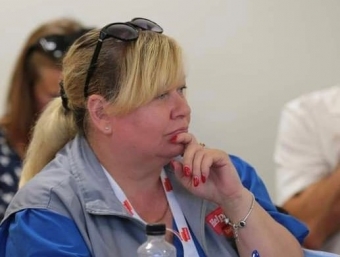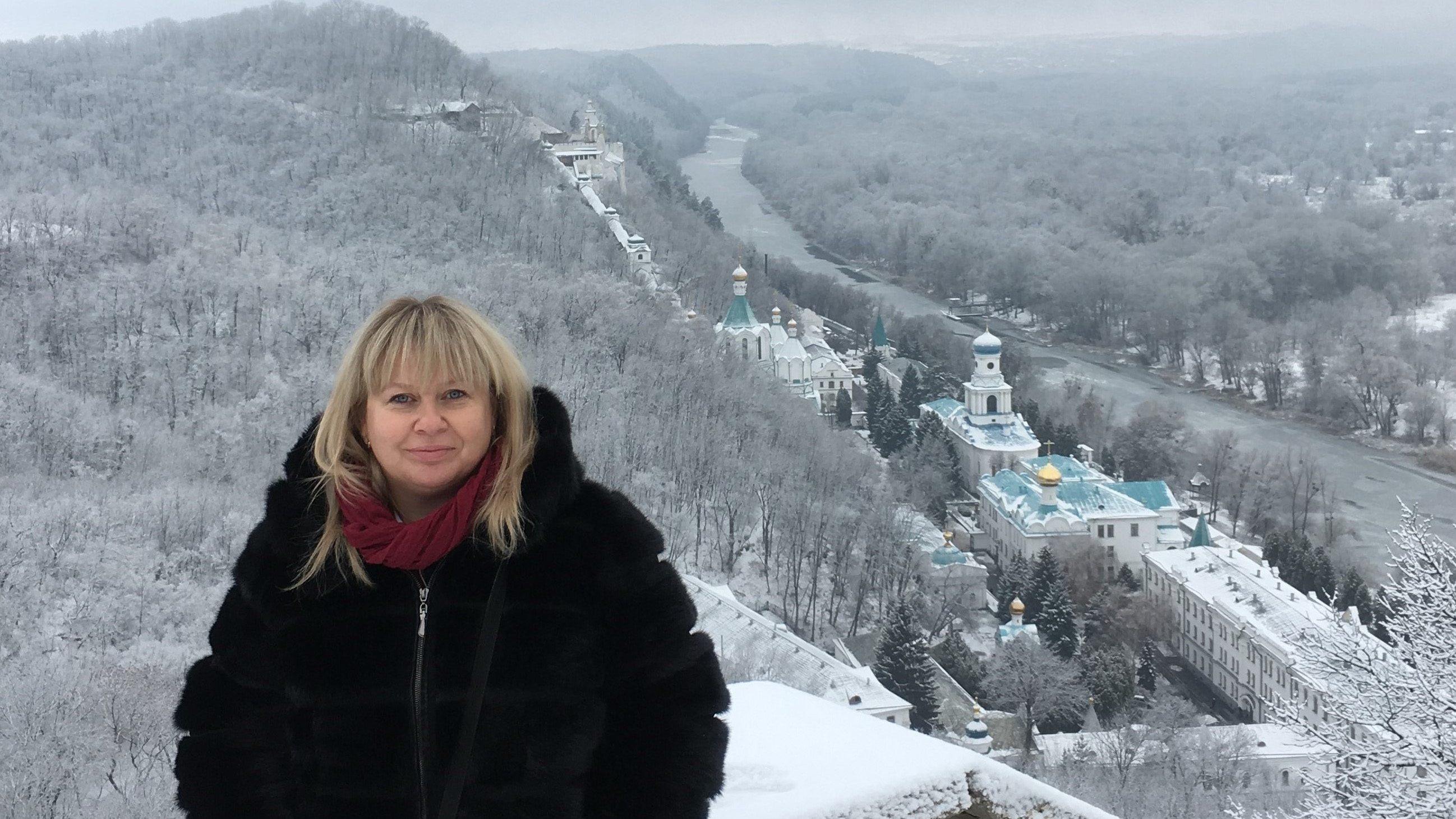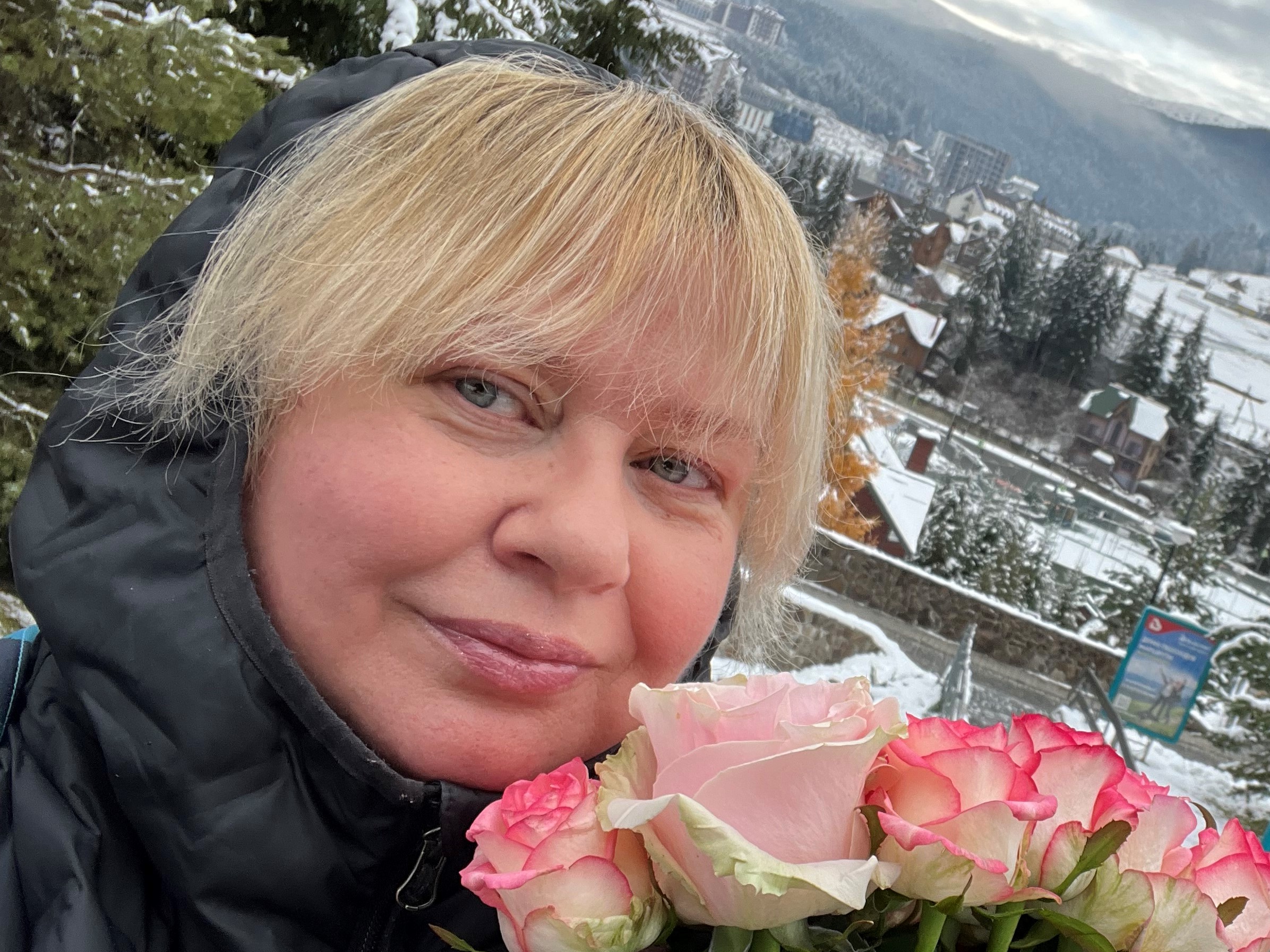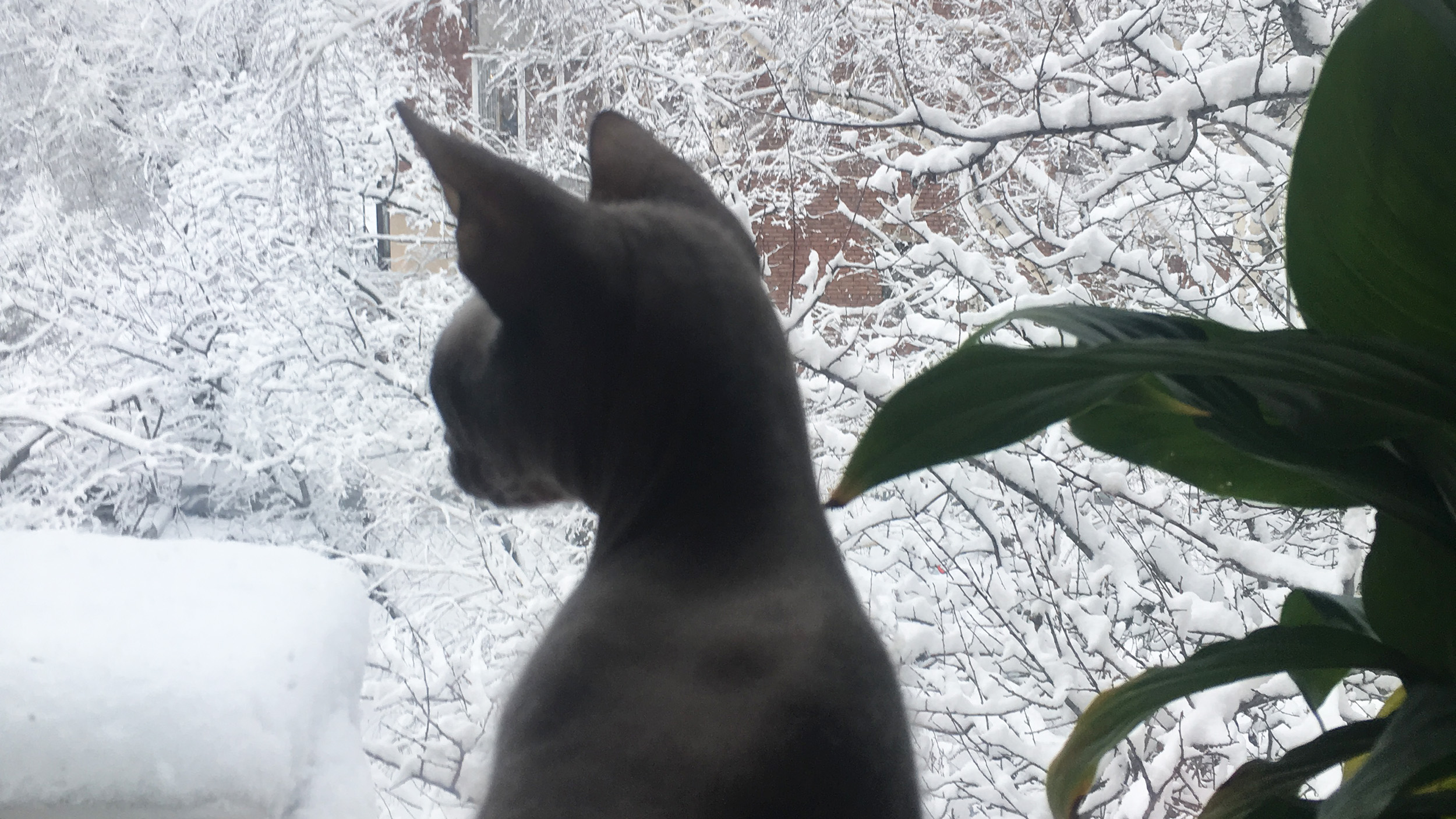
Victoriia Panchenko is the Programme Lead for HelpAge International in western Ukraine. She has found relative safety for her and her family 1,500km from her home in Sloviansk in the town of Lviv. Trying to define the new normal, she looks back at her journey here, both as a professional aid worker and as someone who knows the value and the cost of strength.
How everything changed
“I suppose I can start my story from before the war to try to describe the dramatic change that 24 February brought.
We had a small but powerful team in the east of the country, supporting the most vulnerable older people that had suffered war since 2014. After eight years of providing humanitarian assistance, we were considering supporting more long-term development.
Then the invasion happened.
It did not make everyone stop what they were doing. One of our volunteers organised several rounds of evacuations of older men and women from the places worst affected by hostilities. Another continues to support older people in the areas controlled by Russia. It was never just a job for them.
The search for safety caused our staff to scatter across Ukraine – and the world. It was as devastating for me personally as it was disruptive to the organisation. Losing the skills and knowledge of those who left, meant we had to rebuild our presence practically from scratch.”
Road to safety
“Sloviansk was heavily shelled. Seven or eight times a day, my daughter and I would grab her six-month-old baby to run to the cold, damp bomb shelter. It was neither safe nor healthy for the baby. I can tell that my granddaughter is traumatised by the experience as now as she gets easily startled by loud noises.
It was an agonising decision to leave, but I had to put my granddaughter first. We decided to get on an evacuation train to Lviv. Me, my daughter, my granddaughter and my beloved cat and dog. Like many women in Ukraine, I am the head of the household and feel a lot of responsibility. My relationship broke down with my husband after the conflict in 2014.
My fingernails were torn bloody from trying to hold onto something as we struggled to board. The ride was packed, stuffy, and uncomfortable. There were 14 people and my two pets crammed into a compartment designed for four people at best. It was difficult to breathe.
33 long hours later, we were in Lviv.”

New place, not yet a new home
“The city was brimming with people looking for a place to stay. We were lucky to have found two rooms in an almost historic building in the city centre. It was barely enough for the three of us, along with a friend from work who was also staying with us. But it was a roof over our heads and a shelter for friends and family in transit for months to come. It is only relatively safe here. Some time ago there was a missile strike a few hundred meters from me and my family.
But I keep thinking that people closer to the frontlines have it so much worse. Maybe I’m trying to make myself feel better. Or maybe I have just adapted to constant danger.

I keep thinking of it as a temporary arrangement so I can’t bring myself to fix things up, buy furniture, or do many of the things that used to be part of my daily life. I like to travel to new places, but I like knowing that I can always go home. Now I wonder if I’ll ever be able to.
My home is still intact. I would like to go back, even if just for a visit – quietly in and out.”
Loyal companion
“My cat, Ramses, is a Canadian sphynx – a birthday gift from my friends. In fact, he has been displaced twice, first from the frontline of Luhanske, Donestk oblast. And then to Lviv. The ride here has not been kind to him. Waiting for the train at -10 degrees left him with bad asthma. Now we’re frequent visitors to a local vet.
I consider myself more of a dog person, but Ramses is like a dog in many ways. He sits by the door waiting for me to come home after work. He spends most of his time pressed up against me, cuddling me and giving me little kisses. He’s very special to me, I couldn’t have left him behind.”

Ramses is Victoriia’s cat and loyal companion.
Taming stress
“HelpAge International’s Ukraine team is a close-knit group. A lot of us are displaced people. We all try to take care of each other. Since I have a degree in psychology, I know about some methods of self-regulation and this sometimes helps me. And having a mental health and psychosocial support advisor means a lot. The materials and tips she shares have been very helpful.
We also have infrequent but much-appreciated retreats together. A break from stress and air raid sirens in the fresh air in the mountains does wonders for mental health.
My experience has of course changed me but I’m feeling a little better than I did in the first months of being in Lviv. A colleague of mine was recently playing some music and I realised I hadn’t listened to music since that fateful day on 24 February. Now I’ve started slowly bringing melody back into my life.
Being busy helps in a way and not at all, all at the same time. You have less time to worry about loved ones. But on the other hand, if you don’t have time to process everything, the trauma is bound to catch up with you.”
Supporting those in need
“It means a lot to me personally to be making a difference in so many people’s lives. Older people truly are vulnerable in this war. A lot of them fear moving away from their homes even if they are under near-constant bombardment. They are not open to change at their age. Many don’t have a family to support them. I don’t think there’s anything more tragic than needing safety and care – and having neither.”
